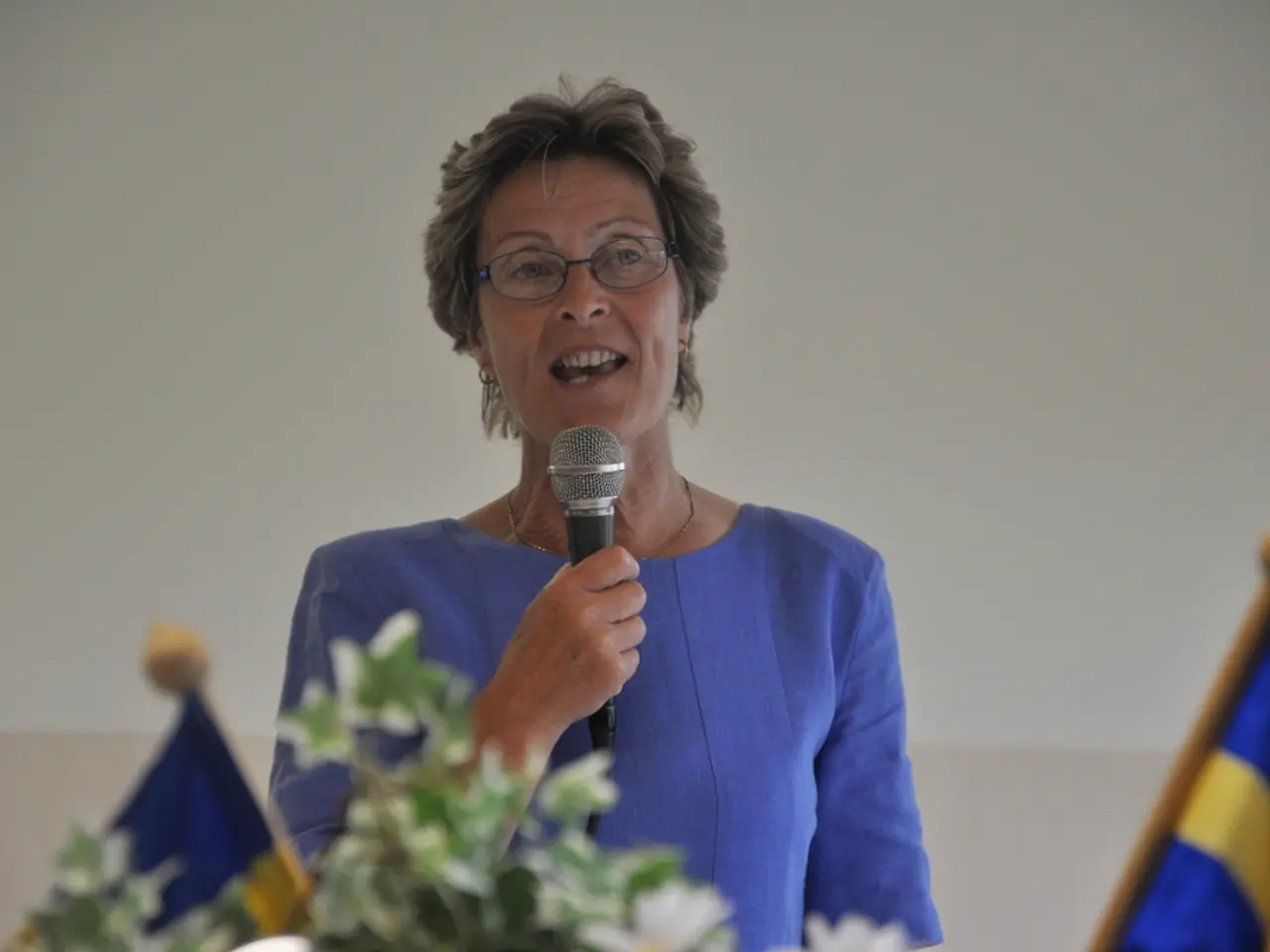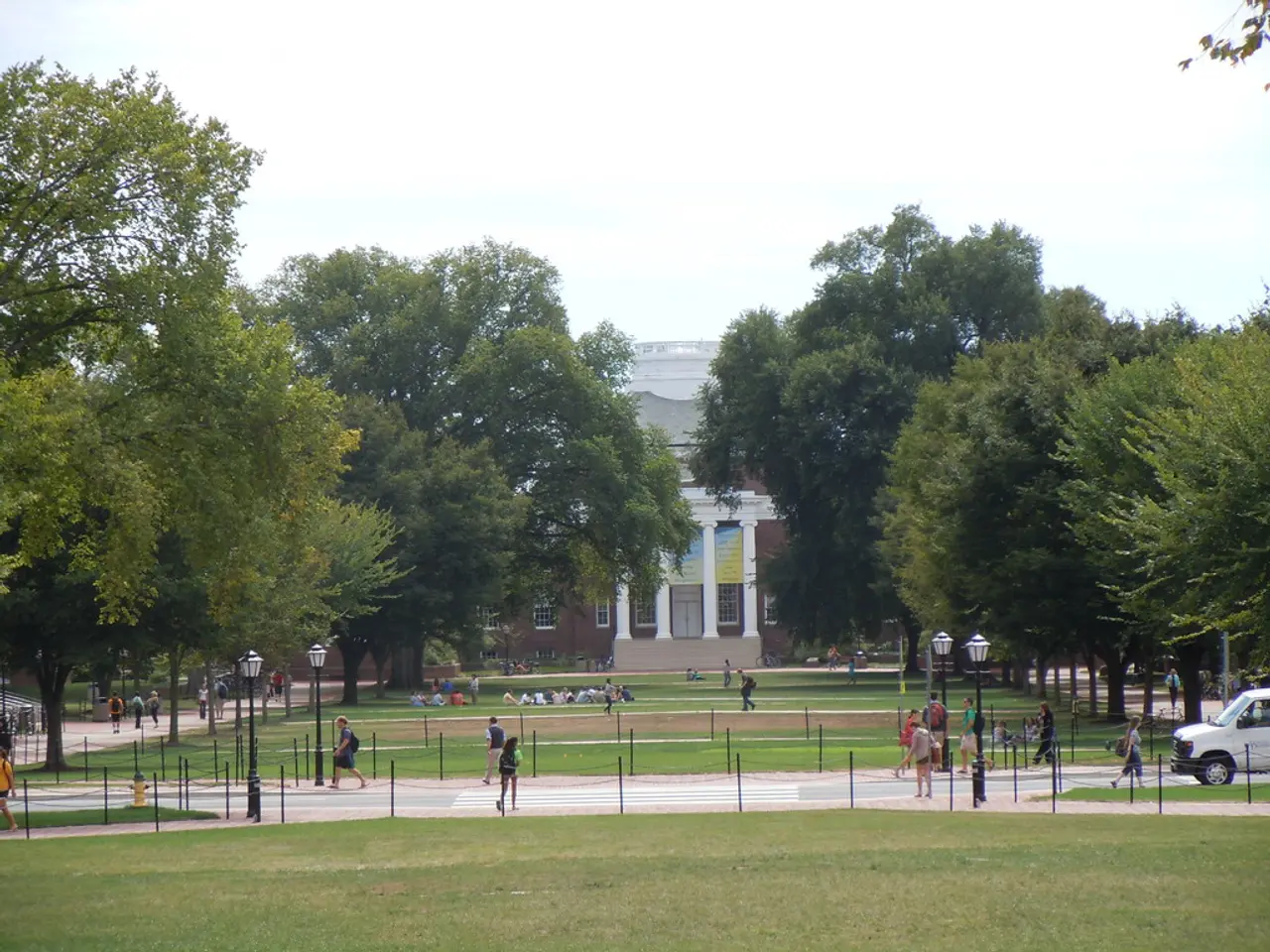Apology from Archbishop Gössl in Controversy over Brosius-Gersdorf's Nomination
Right-wing crusade aimed at tarnishing the bishop of Regensburg's reputation, led by the clergy member.
In the midst of a heated debate surrounding the nomination of jurist Frauke Brosius-Gersdorf to Germany's Federal Constitutional Court, Herwig Gössl, the Archbishop of Bamberg, has issued an apology to Brosius-Gersdorf. Gössl's apology comes four days after his controversial sermon, in which he expressed concerns based on misinformation spread by far-right media and influencers.
Gössl's sermon had emphasized the need for decency and respectful discourse amid the heated debate. He called the controversy surrounding Brosius-Gersdorf's nomination an "internal political scandal" and an "abyss of intolerance and contempt for humanity." Now, Gössl acknowledges that his statements were based on false information and offers his sincere apologies to Brosius-Gersdorf.
Brosius-Gersdorf's stance on abortion, as outlined in a 2024 essay, is nuanced. She considers changes to Germany’s abortion law and reflects on the constitutional relationship between human dignity (Article 1) and the right to life (Article 2). Brosius-Gersdorf suggests that human dignity might only begin at birth and states that it is a "biologistic-naturalistic fallacy" to assume human dignity applies wherever human life exists. This position has sparked significant controversy and criticism from Catholic bishops and conservative politicians.
Bishops Stefan Oster and Rudolf Voderholzer, of Passau and Regensburg respectively, were among the first to stir up the debate. In a joint statement on July 9, they criticized Brosius-Gersdorf’s views on the right to life and called for her to be excluded from consideration as a judge or justice of the Federal Constitutional Court. They argued that her stance constituted a "radical attack" on the constitutional foundations by denying dignity and full rights to the embryo or fetus.
However, Georg Bätzing, head of the German Bishops’ Conference, has taken a more measured position. He defends Brosius-Gersdorf from internal church criticism and underscores the need for respect and dialogue. Bätzing states, "This woman does not deserve to be treated this way" and that "many people involved in the judge's election have now been harmed."
The controversy has also seen far-right media and influencers launch a campaign against Brosius-Gersdorf, labeling her as “ultra-left,” questioning her academic integrity through plagiarism allegations, and attacking her positions on abortion, gender equality, compulsory Covid vaccinations, and banning the far-right AfD party. This campaign has fueled public and political opposition, ultimately delaying her confirmation vote.
Despite the apology from Gössl, neither Oster nor Voderholzer have addressed the objection raised by Bätzing or issued a response to the editorial team's request for clarification regarding their statement on Brosius-Gersdorf and the debate about her appointment as a constitutional judge. The Diocese of Passau maintains its explanation of July 9 regarding the debate about Brosius-Gersdorf.
In a positive development, Gloria von Thurn and Taxis, a prominent figure in German society, has shown support for Bishop Voderholzer, but has not made any derogatory comments about Brosius-Gersdorf. The AfD, which opposes Brosius-Gersdorf’s nomination, continues to benefit from the controversy.
The apology from Gössl represents a step towards de-escalating the controversy and promoting respectful discourse. As the debate continues, it is crucial for all parties involved to engage in open and constructive dialogue to ensure the integrity of Germany's judicial system and the protection of human rights.
In the realm of education-and-self-development and general-news, the controversy surrounding Frauke Brosius-Gersdorf's nomination to Germany's Federal Constitutional Court has sparked heated discourse. This debate has extended to politics, with Catholic bishops and conservative politicians voicing their opinions, and far-right media and influencers launching a campaign against Brosius-Gersdorf.
In the context of crime-and-justice, the far-right's smear tactics against Brosius-Gersdorf, including plagiarism allegations and labeling her "ultra-left," have fueled public and political opposition, potentially impacting the outcome of her confirmation vote.




